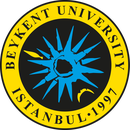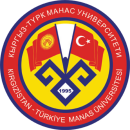
International Conference on Eurasian Economies
1-3 July 2014 – Skopje, MACEDONIA
Paper detail
Paper ID : 958
Status : Paper published
Language : English
Topic : International Trade and Globalization
Presenter: Assoc. Prof. Dr. Çağrı Erdem
Session : 4A International Relations
Connecting Eurasia and the Americas: Geopolitical Implications of the Bering Strait Crossing in the Age of Globalization
Connecting Eurasia and the Americas: Geopolitical Implications of the Bering Strait Crossing in the Age of Globalization
- Assoc. Prof. Dr. Çağrı Erdem (Keimyung University, Korea, South)
Abstract
The Bering Strait crossing would link the entirety of Eurasia to the entirety of the Americas. There are some immense geopolitical benefits of such project. It would bring about a deep and lasting change to global economic outlook. A possible tunnel under the Bering Strait and extension of the railroad network could open vast areas of Siberia containing mineral deposits necessary for global economic growth. According to a number of respectable Russian geologists, Siberia/the Arctic region is home to considerable amount of minerals and fossil fuels. The most valued function of the Bering Strait rail system would be to release those vast natural resources trapped underneath the tundra and permafrost for the benefit of Russia and the world. These resources can be used for global economic development. Moreover, the rail project would also build development corridors in the underdeveloped parts of Russian Siberia. The development of those resources in question and their rapid transportation to the global markets can contribute to overall development of Siberia. This paper will explore/evaluate the possible benefits of the Bering Strait crossing from Russian perspective and Russia’s new role in the Arctic region, under the frame of geopolitics.
JEL codes: F59, J11, L92
Erdem, Çağrı (2014). "Connecting Eurasia and the Americas: Geopolitical Implications of the Bering Strait Crossing in the Age of Globalization" in Proceedings of International Conference of Eurasian Economies 2014, pp.118-124, Skopje, MACEDONIA.
DOI: https://doi.org/10.36880/C05.00958
Session 4A: International Relations




